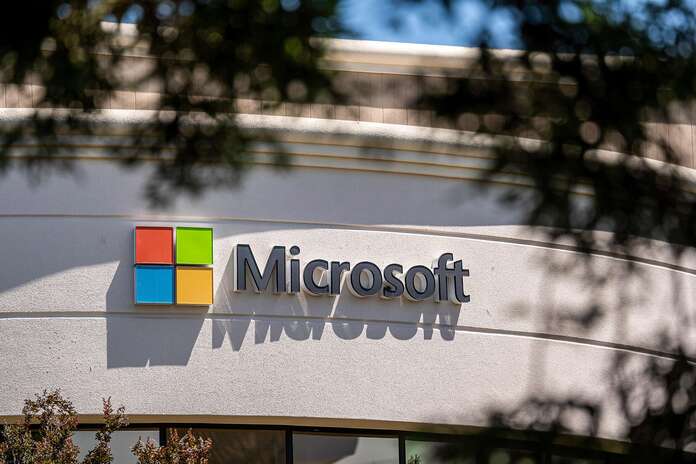Microsoft (NASDAQ:MSFT) is set to report its quarterly earnings, and investors are closely watching for signs that the company’s substantial investments in artificial intelligence (AI) are bolstering its Azure cloud computing segment, a vital part of its business.
In the previous quarter, Microsoft reported a sequential decline in Azure growth. However, analysts anticipate a turnaround in the first quarter of the current fiscal year. Revenue for this period is expected to reach $54.5 billion, representing a nearly 9% year-over-year increase compared to the same quarter the previous year. Analysts are also looking for adjusted earnings per share (EPS) of $2.66, up from $2.35 in the first quarter of 2023.
Over the past year, Microsoft has made AI a central focus of its business strategy. The company announced a substantial $10 billion investment in OpenAI, the developer behind ChatGPT, and introduced generative AI-enhanced versions of its Bing search engine and Edge browser in February.
Subsequently, Microsoft launched various generative AI-powered Copilot applications for Outlook, Windows 11, and Microsoft 365. These applications can summarize emails, assist in document drafting, create PowerPoint presentations, and provide insights into Windows 11 features. Microsoft’s plan is to consolidate these Copilots into a single app in the future.
Investors are eager to see whether these AI investments will translate into growth across Microsoft’s cloud and productivity segments. Analysts are expecting the following:
- Productivity & Business Processes revenue of $18.3 billion, representing an 11.1% year-over-year increase.
- Intelligent Cloud segment revenue of $23.6 billion, reflecting a 16.2% year-over-year growth.
- More Personal Computing segment revenue of $12.9 billion, with a modest decrease of 3.3%.
Of particular importance is the expectation that Microsoft’s Azure segment will experience significant growth, estimated at 27.2%. This would indicate a sequential increase compared to the previous quarter, during which Microsoft reported Azure growth of 26%. Azure’s sequential growth had been declining for over a year, so even a slight uptick could be encouraging for investors.
However, Microsoft will also need to demonstrate that this growth is sustainable and not just a one-time occurrence. Therefore, the guidance for the second quarter for the Azure segment will be just as critical as the first-quarter results.
In addition to assessing the impact of Microsoft’s AI initiatives, investors will be closely monitoring developments related to the company’s $69 billion acquisition of Activision Blizzard. Microsoft completed this acquisition on October 13, but there may still be regulatory scrutiny from the Federal Trade Commission concerning potential antitrust concerns. This acquisition is the largest in Microsoft’s history, making it the third-largest video game company in the world by revenue, following Tencent and Sony. Investors will be keen to hear how Microsoft plans to integrate Activision Blizzard’s titles under the Microsoft brand or within its Game Pass subscription service.
Microsoft’s earnings report and accompanying guidance will offer insights into how AI and cloud computing are shaping the company’s future growth and its position in the tech industry.
Featured Image: Unsplash















